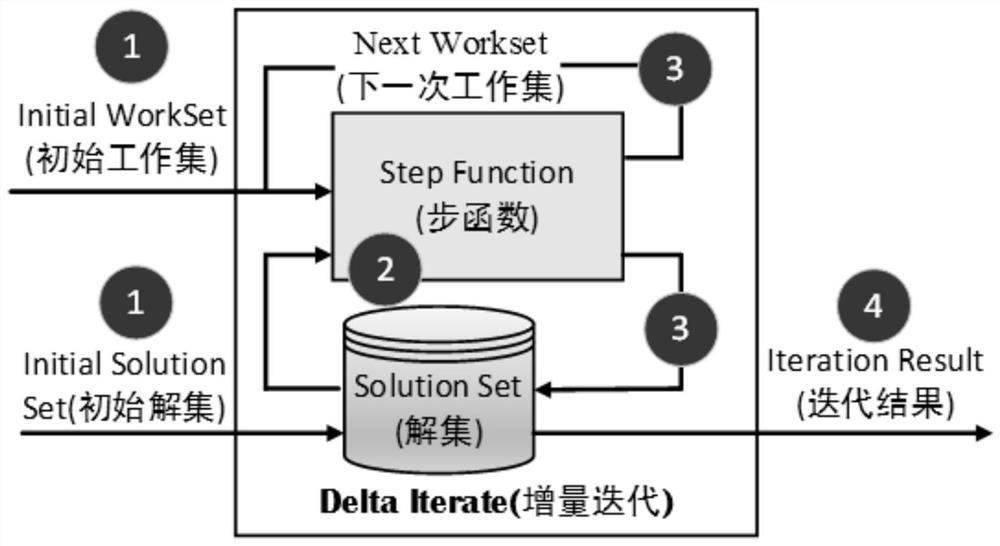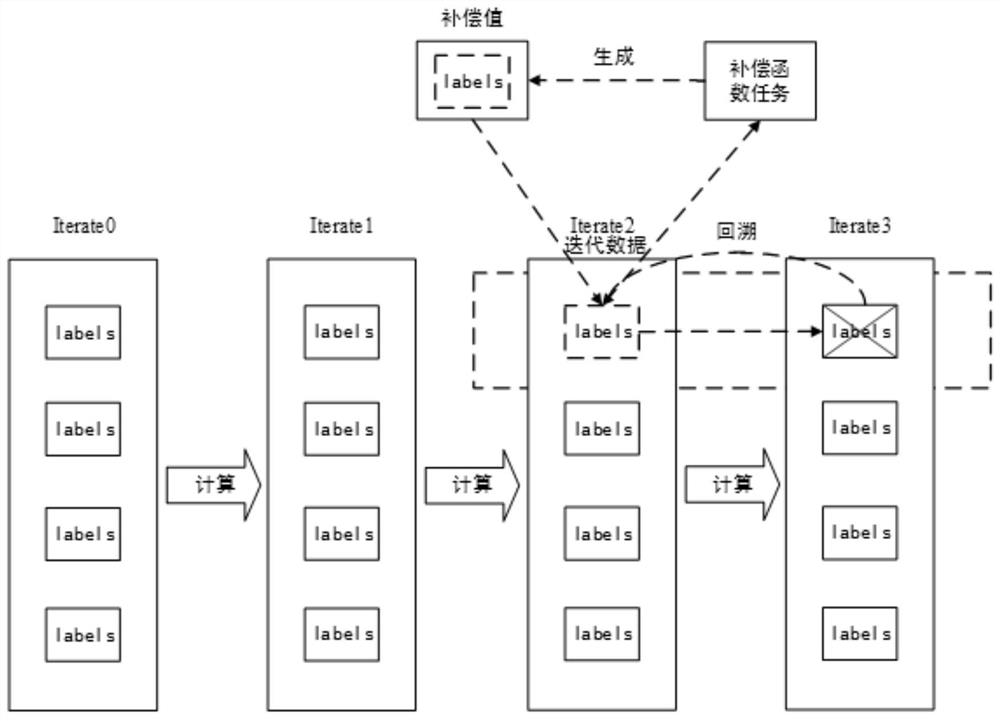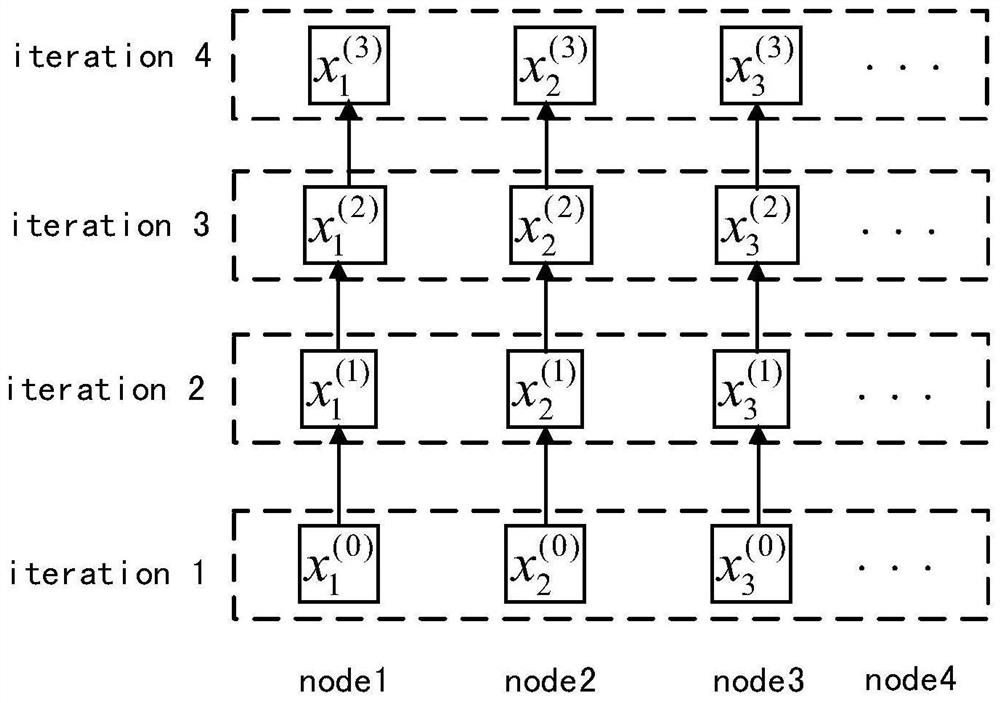An Iterator Based on Optimistic Fault Tolerance
An iterator and iterative technology, applied in the field of distributed iterative computing, can solve problems such as large overhead, no comprehensive consideration of the size of the iterative task and task failure rate, and the impact of iterative computing efficiency, etc., to achieve the best fault-free performance, The effect of reducing the delay of calculation and improving the efficiency of iterative processing
- Summary
- Abstract
- Description
- Claims
- Application Information
AI Technical Summary
Problems solved by technology
Method used
Image
Examples
Embodiment Construction
[0051] The specific implementation manners of the present invention will be further described in detail below in conjunction with the accompanying drawings and embodiments. The following examples are used to illustrate the present invention, but are not intended to limit the scope of the present invention.
[0052] In this embodiment, an iterator based on an optimistic fault-tolerant method is applied to Gaia, a big data analysis system. Gaia is a real-time stream processing system, and its fault-tolerant mechanism is realized by periodically creating snapshots of distributed data streams. These snapshots act as a fallback consistency checkpoint when the system encounters a failure, and resend the data after the snapshot from the data source. Although the fault-tolerant mechanism based on checkpoints is relatively simple to implement, frequent checkpoint settings increase the delay of calculations, especially for more complex tasks such as iterative calculations. This fault-t...
PUM
 Login to View More
Login to View More Abstract
Description
Claims
Application Information
 Login to View More
Login to View More - R&D
- Intellectual Property
- Life Sciences
- Materials
- Tech Scout
- Unparalleled Data Quality
- Higher Quality Content
- 60% Fewer Hallucinations
Browse by: Latest US Patents, China's latest patents, Technical Efficacy Thesaurus, Application Domain, Technology Topic, Popular Technical Reports.
© 2025 PatSnap. All rights reserved.Legal|Privacy policy|Modern Slavery Act Transparency Statement|Sitemap|About US| Contact US: help@patsnap.com



